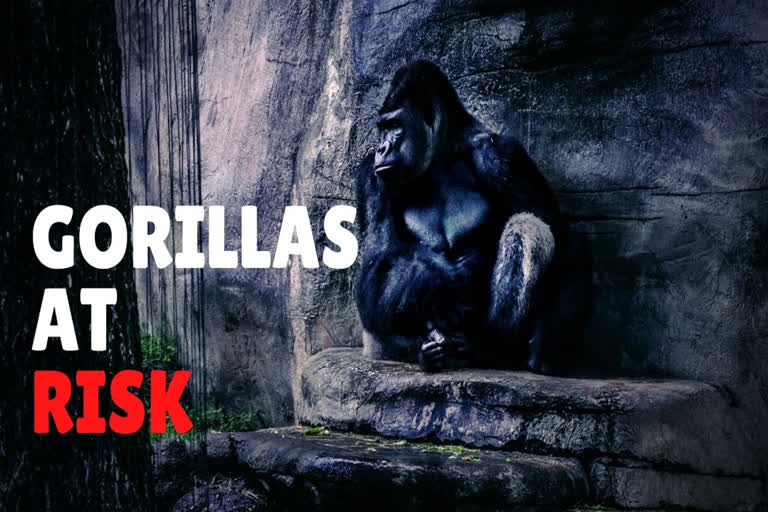Kampala:As the new coronavirus infects more people around the world, conservationists in Africa are warning of the risk to another species that may even be more vulnerable, the endangered mountain gorilla.
This week, the Democratic Republic of Congo's Virunga National Park, an ecologically rich area that is believed to be home to about a third of the world's remaining mountain gorillas, took the decision to shut down the park to visitors until June 1, citing the threat to mountain gorillas from visitors during the COVID-19 virus outbreak.
It's estimated only about 1,000 of the great apes still survive in protected areas in Uganda, Rwanda and Congo, whereas tourist attractions they are an important source of revenue for those governments.
Yet mountains gorillas are known to be prone to some of the respiratory illnesses that afflict humans.
According to the World Wide Fund for Nature (WWF), a common cold can kill a gorilla one reason tourists tracking gorillas normally are not permitted to get too close to the primates.
In a statement, the Virunga National Park said the temporary closure of mountain gorilla tourism in Virunga was a precautionary measure in line with the World Health Organization's recommendation to restrict movement and limit social contact.
"For Virunga in particular, it has been taken following advice from scientific experts indicating that primates, including mountain gorillas, are likely susceptible to complications arising from the COVID-19 virus. As such, we must remain steadfast in safeguarding our population of this endangered species," the statement said.
Read more:Divorce cases soar in China, courtesy quarantine!
Neighbouring Uganda and Rwanda have not announced similar shutdowns of gorilla tourism, although the volume of tourist traffic in those countries has dwindled.
Countries such as Japan, Spain, France and Italy, all affected by the outbreak, are the source of many of the tourists who pay hundreds of dollars each to track the gorillas.
Gladys Kalema-Zikusoka says additional measures are needed to protect the primates.
"Definitely they could die. It could wipe out the whole population. Because it is a viral disease and it can easily spread through a group," she says.
"The additional measures that are being added is disinfectant at all the different sites, encouraging tourists to wash their hands and the wildlife authority is also thinking of… they've approached us to consider the issue of tourists wearing masks. So, we are hoping that that would move ahead very quickly" she adds.
Bashir Hangi, a spokesman for the Uganda Wildlife Authority, says the decision on whether to shut down gorilla tourism is now academic as there is almost no business amid the outbreak.
Still, he says, the few tourists who come are screened for temperature and other symptoms and must obey rules, such as not standing within seven metres of a gorilla family.
Visitors from affected countries who have been placed under quarantine in Uganda need to produce what he called a certificate of isolation before they are permitted to track the gorillas.
Also read:Enjoy your Christmas by taking a tour of Lapland virtually
